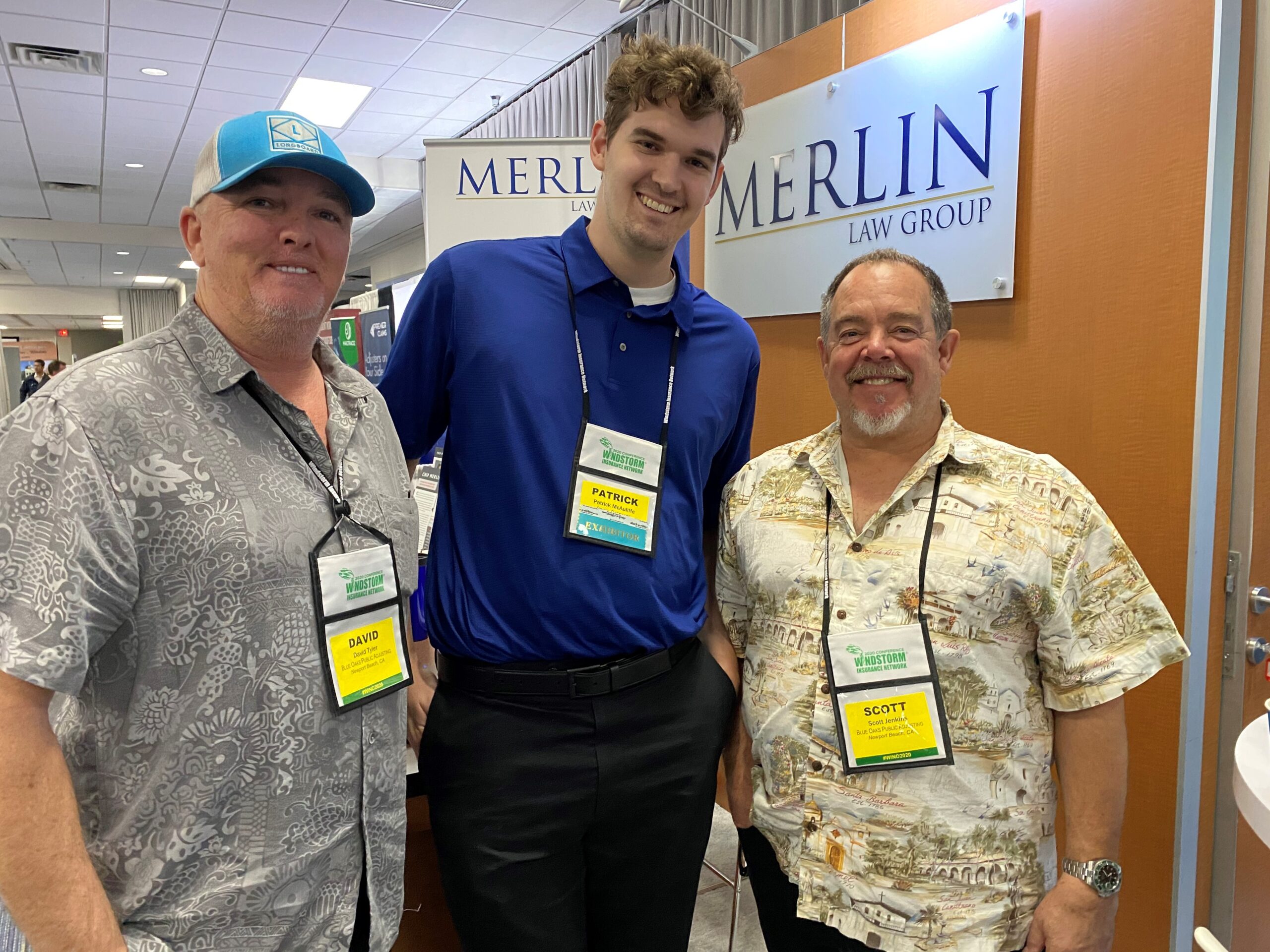Public insurance adjusters David Tyler and Scott Jenkins came all the way from Newport, California, to attend the Windstorm Insurance Conference on Orlando. They came by the Merlin Law Group booth asking me some questions about roofing losses involving windstorm in California and the problems of ash from wildfire claims.
We then discussed how Matterport cameras are being used on all of their losses. We discussed the trend of how that technology is being implemented to show losses much better than just pictures can do. Patrick McAuliffe from Simsol overheard the conversation from his booth, which is next to ours. Patrick and the two public adjusters started discussing how Simsol is trying to work with Matterport so that the Simsol estimating technology can work with Matterport’s visual technology to help provide better and more transparent estimating which can be reviewed virtually.
It is amazing how old methods of property claims adjusting are changing with new technologies. Going to conferences, especially premier ones like the Windstorm Insurance Conference, provides opportunities to learn from others about trends and new techniques to do a better job adjusting and estimating claims.
For policyholders looking for credentialed and the best professionals to help them, see if they go to these conferences. Professionals passionate about what they do are committed to lifelong learning and doing the best they can.
Cheers to Simsol and Matterport for developing new technologies to help make the claims adjustment better, more accurate, and more efficient.




